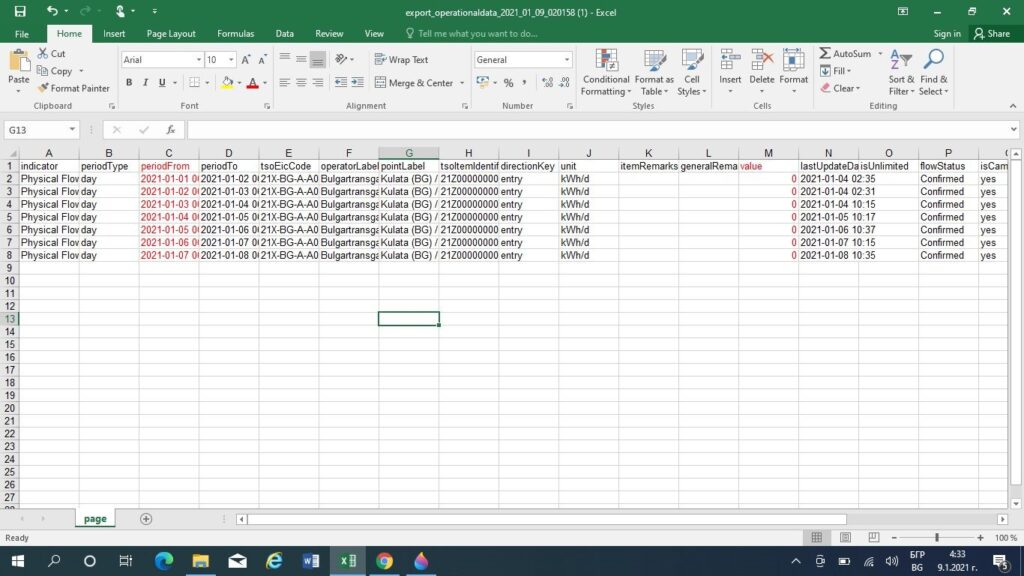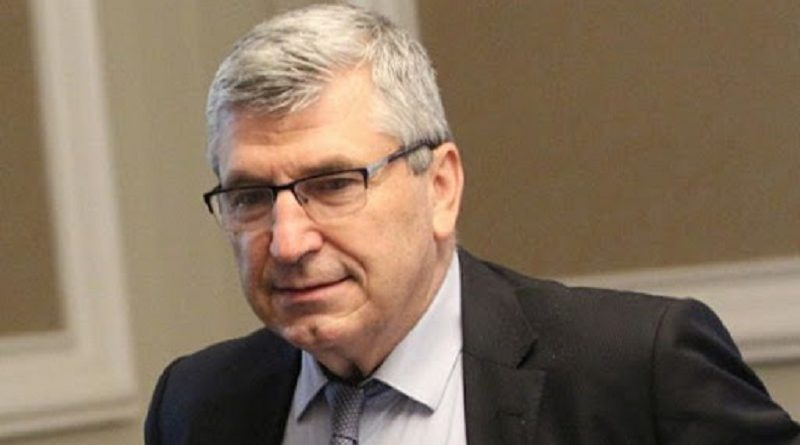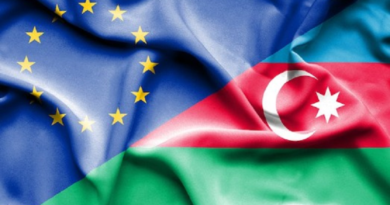Alternatives & Analyses: In search of the missing Azeri gas
TurkStream’s coming online forced Prime Minister Borissov to present his own, independent of President Vucic’s story, narrative of Bulgaria’s ostensible gas diversification.
Russia received its tangible diversification of routes. Bulgarian consumers were expecting diversification of sources and lower prices and got nothing.
Bulgargaz’s contract with the Azerbaijani Natural Gas Supply Company (AGSC) seems to be active, but the Azeri’s gas final destination remains a mystery. Questions pile up, and the absence of answers can generate political tectonics on a scale. If global news agencies report that Azeri gas physically flows into Bulgaria, which turns out not to be accurate, then the stakes are high.
The Background
On January 1, the Bulgarian Prime Minister paid a visit to a gas compressor station near Petrich. One of the highlights was the news, broken by Bulgargaz’s CEO Nikolay Pavlov, at Boyko Borisov’s prompt, that starting the morning of December 31 Azeri gas has started flowing into Bulgaria from Greece.
Operational data from Bulgartransgaz’s website prove this to be a false and misleading statement. Not a single cubic meter of natural gas has entered the Bulgarian NGTS by January 9.

The implications are difficult to figure out at this stage but demonstrate the hectic attempts to provide a smokescreen for TurkStream’s coming online the same day.
These articles analyses and comments are made possible thanks to your empathy and contributions, which are the only guarantors of independence and objectivity in our work. The Alternatives and Analysis team.
The presence of the Ambassador of Azerbaijan to Bulgaria and the announced by PM Borissov subsequent call with Azerbaijani President Aliyev leave little doubt that the gas supply contract has become operational. Henceforth, the Azeri natural gas, contracted by Bulgargaz, flows outside Bulgaria. Bugartransgaz’s data on the physical flows cannot be contested. The TSO shares its data with ENTSOG – the Association of European gas transmission network operators.
Azeri gas – the cheapest gas in Bulgargaz
At the January 1 morning live stream from Petrich, Bulgargaz’s CEO remained mute on the expected change in the gas price formula in the contract with the AGSC, which means that it has remained intact, 100% oil-indexed.
Due to skyrocketing demand for gas in Asia and associated price hikes, gas spot prices in the EU leapt above 23 euros/MWh.
On the Spanish gas exchange PVB, which is unusually sensitive to LNG’s price fluctuations, spot prices briefly shot above 52 euros / MWh during the trading session onMonday.
Such turbulence made the 100% oil-indexed contract with AGSC extremely attractive, more than the supply contract with Gazexport, whose price formula reflect spot prices with a 70 per cent weight. Meanwhile, the Bulgarian State Regulator – EWRC, announced the new gas price from January 1, 2021, closely tracking Gazprom’s price at 13.7 euros/MWh. Prices in the contract with AGSC are at least a euro lower.
Imports of LNG, which has lost its competitive edge, have stopped altogether.
Just when Azeri gas from the Southern Gas corridor, started to deliver real diversification after tens of billions of euro spent and a decade of hard work, the most competitive gas in the Bulgargaz’s gas mix strangely “vanished”.
The puzzle is yet to be solved, and information is scarce. An educated guess is warranted in light of the profound implications.
The only way to reconcile the start of Azeri gas’s gas flows, as per PM Borisov’s assertion on January 1, and its non-entry into Bulgaria is if Bulgargaz resells it, with Italy being the logical destination.
The margins between Azeri gas oil-indexed and spot prices appeal to corrupt politicians and state oligarchs – over 7-9 euro/MWh for January and above 9 euro/MWh for March, based on Bulgargaz’s forecasts. Instead of The Bulgarian state gas trader using this cheapest gas in the region, to lower domestic consumer prices and boost local goods and services’ competitiveness, the difference in all likelihood ends up in private pockets.
The Achilles’ heel of the Balkan gas hub was the lack of liquidity and competitive prices. Fate smiled on Bulgargaz with the cheapest gas in Southeast Europe. The Turkish Botas and the Greek Depa renegotiated the Azeri gas price formula, introducing spot price elements, making it higher priced than Bulgargaz’s. If these monthly quantities – up to 90 million cubic meters per month, could find their way to the gas exchange, Bulgargaz would have sold them immediately.
Questions are more than warranted – Where is Azeri gas going under Bulgargaz’s contracts?
How are buyers selected? Was this a direct sale or using an intermediary?
If there is such hidden deal with the “missing” Azerbaijani gas, which harm Bulgarian consumers and the budget, did the Minister of Energy and the Prime Minister know about it?
If history is a useful guide, the Prosecutor General’s muted reaction means that Peevski and Dogan’s political oligarchs are also on the ball.
Questions, questions.
Ilian Vassilev
Thank you for your donnations via PayPal and bank transfers to IBAN BG58UBBS80021090022940




